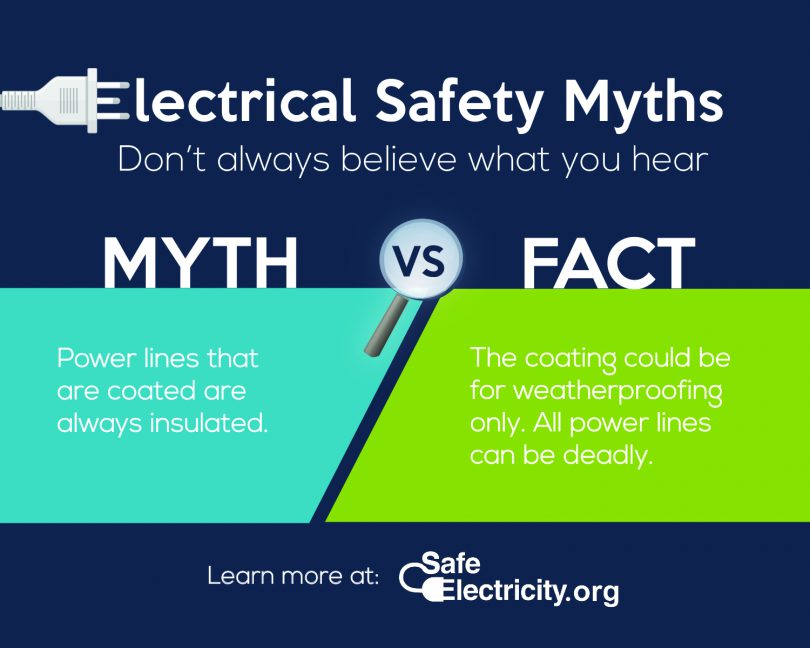Electricity lights homes and businesses, provides warmth and keeps appliances and equipment running smoothly. During Electrical Safety Month, CREA and Safe Electricity provide these electrical safety tips to avoid hazards both inside and outdoors.
Staying safe on the road
Downed power lines can happen because of wind, storms, animals or an auto accident/collision.
1. If you see a downed power line, call 911 to report it and stay in your car. You cannot tell by looking or listening if the power line is deenergized. Wait in your vehicle until an electric cooperative crew member says it is safe to get out.
2. Do not drive over a downed power line. Even if the line is deenergized, doing so could cause a domino effect and bring down other lines, poles and equipment.
3. The only time you should exit is if your vehicle or cab is on fire. If this is the case, make a solid jump from the car or cab without touching it, landing with both feet together. Then, hop away with your feet together as far as you can.
Staying safe outside
When working outside, be aware of overhead and underground power lines.
1. Keep at least 10 feet away from overhead power lines. Keep any items you are carrying or using, such as long poles or other extended equipment, 10 feet away from power lines at all times. Carry an extension ladder or other far-reaching tools or equipment horizontally.
2. Make sure that all outside outlets are ground-fault circuit interrupter (GFCI) protected.
3. Before digging, call 811 or your local underground locating service. Buried lines such as electric, gas, water, sewer and other lines bring services indoors. Besides the dangers of coming in contact with a gas or electric line, fines due to damage are the responsibility of the homeowner or landowner. Privately owned lines and systems will not be marked by the free service.
4. When you see lightning, take shelter inside the house, shop or a hard-topped vehicle for protection. Stay away from high places, and do not take shelter under an isolated tree. Stay away from items that conduct electricity, such as metal fences. If you are swimming or in a hot tub, get out. Water is an electrical conductor that is dangerous during a storm.
Staying safe inside
With so many people working from home, the workplace and where you live can be one and the same. This means more devices are plugged into outlets or circuits that may not be able to handle the load.
1. Have a qualified electrician/licensed contractor check for hazards if you notice the following: dimming lights, a sizzling or buzzing sound, the smell of warm plastic, a switch plate that feels warm or looks scorched, sparks when plugging in or unplugging items or circuits that trip often.
2. When working with electrical equipment inside the house or shop, be aware that electrical equipment can spark when flammable vapors, gases or dust are present.
3. Do not overstretch a cord or use frayed or damaged cords.
4. During storms, lightning can enter homes through corded phones, televisions, radios or computers. Lightning can also travel through plumbing, so do not take a bath, shower or wash dishes when you see lightning strikes. If possible, unplug appliances and electronics before the storm, including cellphones that are charging via electricity. Surges caused by lightning can damage electronics and appliances.
For more information on electrical safety, visit SafeElectricity.org.

